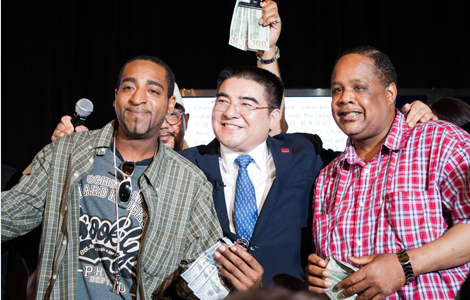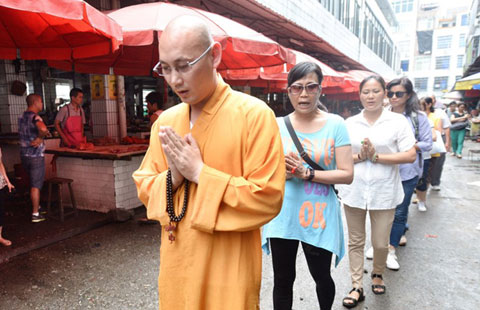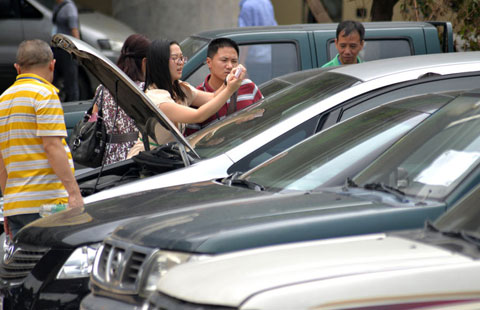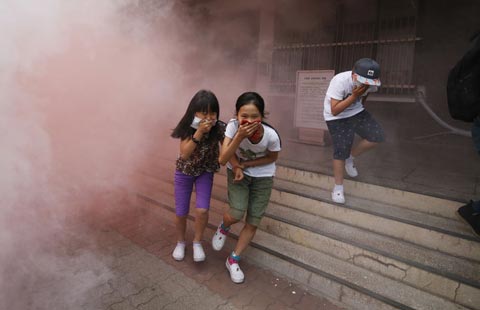David Henry Hwang on his latest opera and Asian-American representation
Updated: 2014-06-24 06:22
By AMY HE in New York (China Daily USA)
|
||||||||
The death of US Army Private Danny Chen in 2011 is a story that remained in the back of playwright David Henry Hwang's mind, but when he was approached about writing a play about it, he didn't feel like he could apply his best efforts to it in such a format.
But Chen's life and suicide, widely reported to be the result of his military superiors' racism, was a worthy one to tell, he said. So when the Washington National Opera commissioned composer Huang Ruo and Hwang was asked to be a librettist, he pitched the Chen story and got both Huang and the Washington National Opera on board with the idea.
"This was a story that remained in the back of my mind because it was an important story, but I just didn't know how to do it until this idea of doing it as an opera came along," Hwang told China Daily. "It's a pretty blatant example of racism and so I feel like when I do a play, I'd like there to be some degree of ambiguity, some irony, and I didn't really feel that so much with this story."
But translating the story into an opera allowed Hwang to work better "with emotions, big stories, and primary colors", which he felt the Chen story had. An American Soldier, which premiered at the Kennedy Center in Washington on June 13, is a fictional account of the court-martial of Chen's superiors involved with the hazing of the 19-year-old during his short time serving in Afghanistan.
An American Soldier is one of Hwang's latest works that depict the lives and identities of Asian Americans, his most recent other work being a play on the life of Bruce Lee. Hwang, a California native who is now based in Brooklyn with his wife and two children, has worked as a playwright for almost 35 years, seeing opportunities in the theater landscape for Asian Americans that didn't exist when he first started.
"Thirty years ago, even the whole Asian American term was still, people didn't know that," he said. "The idea of Asian American theater, nobody even within the theater knew names of plays or playwrights, where at the moment I think there's a really fertile crop of young Asian-American writers."
Asian-American representation has been slow to solidify in theater and on Broadway, but "no slower" than that in television and film, and may perhaps yield more meaningful roles for Asian-American actors than what can be found in Hollywood, Hwang said.
"It certainly is easier to make a living, by and large, in film and television, but that's true for writers too. There's just more money in film and television. Let's say you're an Asian actor and you live in L.A. and you basically do film and television. It's probably easier to sustain yourself and you're probably going to be playing a lot of small parts, many of which are stereotypical," he said. "I think if you live in New York and you work in theater and you're an Asian American actor, I think the work that you do — you may not work as often, but I think the work that you do will be more satisfying by and large, but you're not going to make that much money, because you don't make that much money doing theater, period."
There are fewer roles available in theater for Asian-American actors, but the ones that are available are more substantial, he said. Not-for-profit theater has made a conscious effort to increase diversity, but "nobody really knows how to do it yet, so the results are not very good", Hwang said, referring to a 2012 report from the Asian American Performers Action Coalition showing that 80 percent of all theater show roles go to white performers, compared to the 13 percent African American and 2 percent Asian American.
Asian Americans may start seeing more representation in the media though, starting with a new sitcom from writer and chef Eddie Huang, whom Hwang is a fan of. The show, Fresh Off the Boat, got picked up by ABC-TV and is set to premiere sometime this year and is based off Huang's memoir of the same name about his family's immigrant experience in the US.
The show has encountered criticism, some of it from Asian Americans who think the way Asians are portrayed on the show is stereotypical. Hwang said that Asians can be like a "circular firing squad", levying some of the harshest criticisms to fellow Asian Americans.
"Ideally, there would be all sorts of things out there, and then we would be able to go, just like any other show, 'I like Game of Thrones, but I don't like Breaking Bad.' We should be able to go, 'I don't like Fresh Off the Boat, but I like this other Asian show!' The problem is that there aren't that many, which is why it puts a disproportionate amount of responsibility on a single show," he said.
"But if the single show doesn't succeed, then there aren't going to be all these other shows. That's just the way Hollywood works. So I think we have to be generous and understand that the creators of the show are largely Asian American, there are a lot of Asian Americans involved. They are doing their best within a network system, which is incredibly difficult to navigate, to put out something that will break new ground and will counter stereotypes."
amyhe@chinadailyusa.com
 |
|
New York Playwright David Henry Hwang at the Signature Theatre in New York. Hwang wrote the libretto for the recently premiered "An American Soldier", an opera based on the life and suicide of Army Private Danny Chen. [Amy He / China Daily] |

 PLA ships arrive in Hawaii for naval exercise
PLA ships arrive in Hawaii for naval exercise
 Baucus: Investment pact opens a new chapter
Baucus: Investment pact opens a new chapter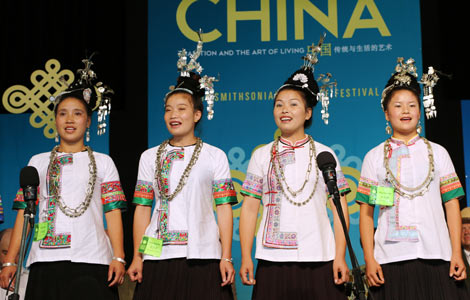
 2014 Smithsonian Folklife Festival kicks off in DC
2014 Smithsonian Folklife Festival kicks off in DC
 Germany vs USA - The battle of two masterminds
Germany vs USA - The battle of two masterminds
 Apple to launch bigger iPhones to reignite sales
Apple to launch bigger iPhones to reignite sales
 Xunlei IPO on Nasdaq raises $88m
Xunlei IPO on Nasdaq raises $88m
 Beijing, Boston are just 13 hours apart
Beijing, Boston are just 13 hours apart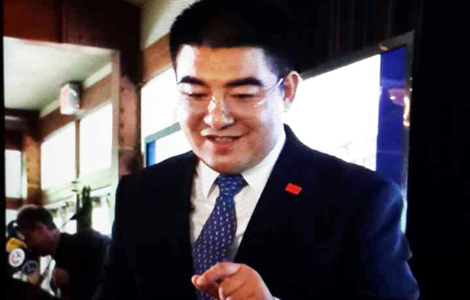
 Chinese tycoon hosts luncheon for homeless New Yorkers
Chinese tycoon hosts luncheon for homeless New Yorkers
Most Viewed
Editor's Picks
|

|

|

|

|

|
Today's Top News
Envoy rejects a 'zero-sum' strategic race
Chen Guangbiao's charity event provides lunch, no cash
Google unveils new products
Overseas services boosted by Alipay
Opinion: Fine twist in Sino-US military ties
Bigger Apple iPhones said to start mass output soon
Chinese investors discovering lure of Motor City
Pilots' 'mismanagement' causes Asiana crash
US Weekly

|

|
